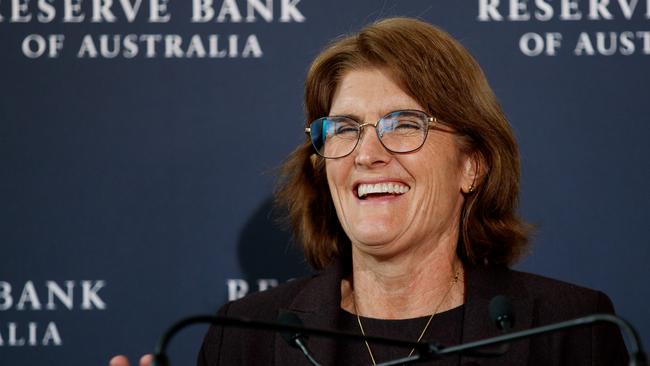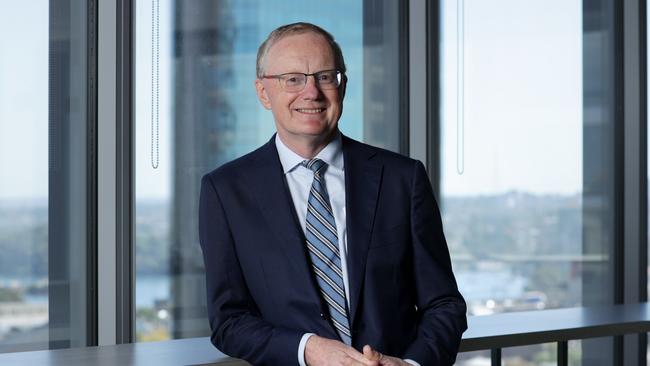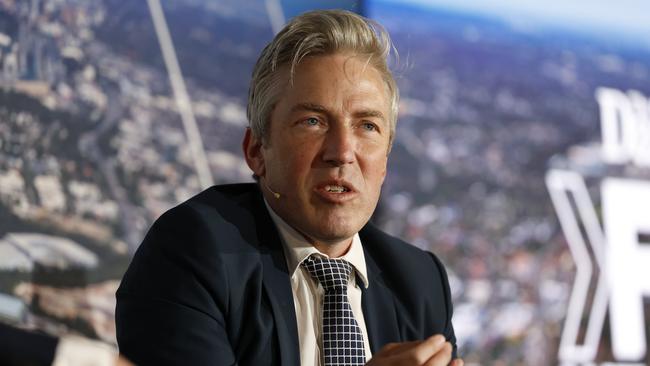Reserve Bank Governor Michele Bullock secures $1 million salary amid cost of living crisis
RBA boss Michele Bullock told taxpayers struggling to make ends meet that they may have to sell their homes last month – now it’s been revealed she’s secured a pay rise larger than the average Australian salary.
NSW
Don't miss out on the headlines from NSW. Followed categories will be added to My News.
Reserve Bank of Australia boss Michele Bullock told taxpayers struggling to make ends meet that they may have to sell their homes and suffer from “cashflow shortfalls” last month – now it’s been revealed she has secured a pay rise larger than the average Australian salary.
The RBA boss is set to receive even more taxpayer cash than her predecessor, with the newly installed governor securing a salary increase of $100,000 more than Philip Lowe.
Buried deep in the hundreds of pages of the RBA’s latest annual report is the rising salary of its new boss, with the governor set to be paid a base salary of $1.081 million for her first 12 months in the role.
Meanwhile, Bullock’s predecessor was paid a base salary of $974,602 in the 2022-23 financial year.
Ms Bullock secured $14,142 in additional benefits on top of her salary since taking on the top job in September 2023.

The RBA governor has now secured her place as one of the highest-paid banking bosses across the globe.
European Central Bank President Christine Lagarde is paid €427,560 (A$697,698.82), while US Federal Reserve Chair Jerome Powell is paid US $190,000 (A$286,678).
Revelations of Ms Bullock’s $106,000 salary increase comes as she told families last month they may have to “sell their homes” and make “painful adjustments” as a result of the cost of living crisis.
“This includes things like cutting back on their spending to the more essential items, trading down to lower quality goods and services, dipping into their savings or working extra hours,” she said.
“Some may ultimately make the difficult decision to sell their homes.”
The annual reports also revealed the RBA has increased its general operating costs by more than $200 million in the last five years.
The annual report showed $406 million was spent running the RBA in the 2019/20 financial year, increasing $100 million in the last financial year alone from $500 million in 2022/23 to $607 million in 2023/24.
The annual report revealed staffing costs increased from $241.8 million in 2019/20 to $334.5 million in the latest financial year. Centre for Western Sydney representative, professor Andy Marks told The Sunday Telegraph Ms Bullock’s massive salary increase and a budget blowout in operational costs wouldn’t pass the pub test.

“A major budget uplift for an organisation performing well might be justifiable. But the RBA defied its own interest rate predictions to the detriment of millions of ordinary Australians,” he said. “These people are dealing with one of the worst housing and cost of living crises ever. Faith in public institutions has never been lower. This won’t help.
“Data tells us the worst impact of Interest rate increases is being absorbed by lower income earners. They are already making painful adjustments, mostly without the luxury of choice.”

The blowout in spending from the Reserve Bank comes as statistics from Finder’s Consumer Sentiment Tracker last month revealed approximately 1.4 million Australians were facing mortgage stress.
Meanwhile, the RBA’s own quarterly tracker shows families are being slugged more for everyday costs, with $2464 billion recorded in “household liabilities” in June 2019, increasing to $3156 billion in the last quarter.
Research from Monash University, released earlier this year, revealed when inflation hit its highest levels in 33 years in early 2023, 53 per cent of people surveyed reported “struggling to afford basic needs”.
The Reserve Bank of Australia was contacted for comment.



